FIEs remain reluctant to take on stock listing
The stock market has witnessed a dearth of foreign-invested enterprises (FIEs) going public in the past six years. In fact, the latest to be listed in this country was Siam Brothers Vietnam in 2017, marking the end of a decade-long dry spell for FIE listings.
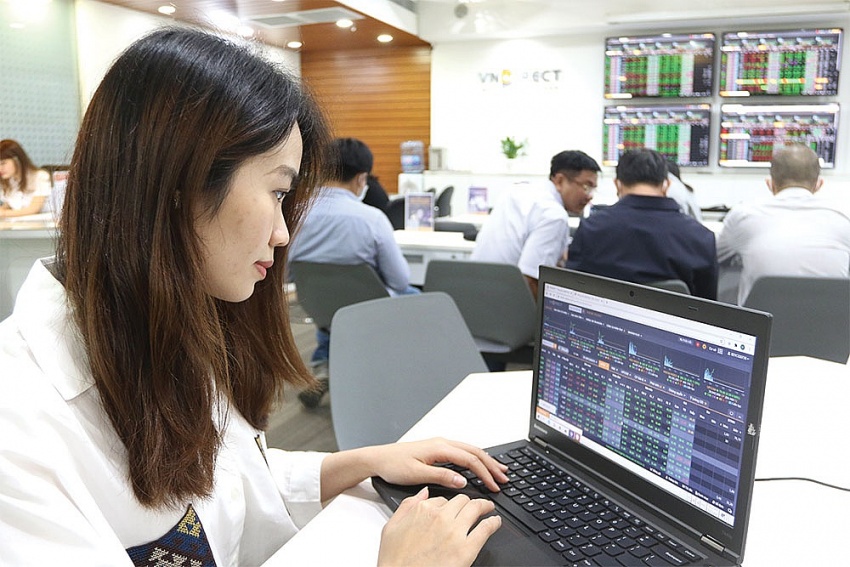 |
| Some renowned companies may be more keen to list elsewhere, photo Le Toan |
While a wave of FIEs debuted on the market during 2003-2008 following the introduction of rules on transforming a number of FIEs to operate in the form of joint-stock company, their numbers have dwindled over the years, with some even being delisted.
At present, only nine FIEs remain listed, with three others trading on the Unlisted Public Company Market (UPCoM). Aside from Siam Brothers Vietnam, the remaining entities include Everpia, Mirae, Tung Kuang Industrial, Taicera (TCR), Taya Vietnam Electric Wire and Cable, The Royal International Corporation (RIC), Interfood (IFS), Chang Yih Ceramic.
While this group of companies generally report annual profits, their earnings growth has been volatile.
TCR, a Taiwanese firm producing ceramic tiles in Vietnam since 1994, has experienced a highly irregular financial performance, albeit returning to profitability in the past two years, though still relatively modest compared to its past losses.
RIC incurred continuous losses ever since its 2008 listing and was officially delisted for a week in May 2022, following three consecutive years of negative business results.
Conversely, IFS has exhibited a strong comeback. The brand owner of Wonderfarm’s Bitter Melon Tea has consistently recorded substantial profits in recent years, successfully eradicating its accumulated losses since the end of 2021. With profitable operations last year, IFS has decided to allocate almost all of its earnings to distribute dividends to shareholders.
Currently, IFS has a charter capital of over $37.8 million, with foreign shareholders from Singapore holding 95.66 per cent of the company’s equity.
Despite the lack of movement in the situation over the years, some well-known names have dabbled with the idea of listing in Vietnam. Several prominent companies have expressed their interest in the Ho Chi Minh Stock Exchange (HSX) in particular, with C.P. Vietnam being a notable example.
In a statement submitted to the Stock Exchange of Thailand in 2022, parent company Charoen Pokphand Foods (CPF) confirmed that the company’s board approved the registration process for C.P. Vietnam to become a public company through the issuance of common shares to minority shareholders.
Prior to C.P. Vietnam, Japanese retail giant AEON in November 2021 alluded to a strategic endeavour of securing a listing for its equities on the Vietnamese securities market. However, concrete indications regarding the progression and execution of listing plans such as these remain elusive.
Tran Thi Khanh Hien, head of Research at VNDIRECT, noted that one of the major concerns for FIEs considering listing in Vietnam’s stock market lies in their reluctance to effectively disclose and adhere to information disclosure rules as prescribed by regulatory authorities.
“The performance of listed FIEs has been underwhelming due to their limited ability to raise capital from the Vietnam’s stock market, which is currently labelled as a frontier market,” Hien told VIR. “The domestic market itself remains relatively small, with modest capital scale, making it less attractive for them to mobilise substantial funds.”
Hien also raised concerns that the listing of FIEs in the stock market carries inherent risks, particularly in terms of capital withdrawal, as they could mobilise funds from the Vietnam’s market before swiftly redirecting them abroad.
“Nevertheless, with the regulatory landscape becoming more stringent and Vietnamese authorities taking proactive measures, the risk of capital withdrawal has considerably diminished,” Hien added.
The majority of FIE stocks listed on the Vietnamese stock market are considered penny stocks, lacking the significant impact necessary to drive the overall market dynamics. As a result, these stocks have yet to contribute significantly to the development and growth of the market.
Looking ahead, Hien highlighted, it is unlikely that the Vietnamese government will relax regulations or actively encourage a massive influx of FIEs seeking listing opportunities within the next 2-3 years. The current stance suggests that FIEs will still be required to meet specific stringent standards and comply with regulatory frameworks.
“In the case of C.P. Vietnam, although many people may expect it to list in Vietnam, the company’s lack of definitive actions, such as submitting listing applications to the HSX, raises doubts about its strategic direction. It is imperative to closely monitor its future actions and decisions to ascertain intentions and plans regarding stock market listing,” she added.
C.P. Vietnam is a large, prestigious company with huge profit – and it has the capacity to explore listing opportunities on more developed stock markets, according to Hien.
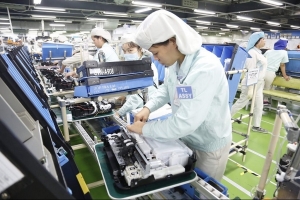 | Import-export turnover of FIEs drops by $9 billion The import-export turnover of foreign-invested enterprises (FIEs) dropped by $9 billion in the first two months. |
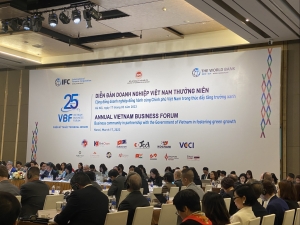 | VBF: FIEs seek IRC easement for new locations Foreign-invested enterprises (FIEs) require the authorities to loosen regulations to grant investment registration certificates (IRCs) for their business locations and branches. |
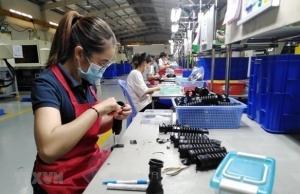 | Widescale renovations needed for FIEs to thrive in Dong Nai Unfinished roads for industrial parks, dust pollution from airport construction, and lack of housing for on-site workers are just some of the difficulties facing foreign-invested enterprises in southern province of Dong Nai. |
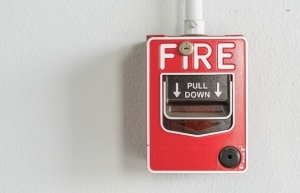 | Fire safety regulation frustration lingers for FIEs Many foreign-invested enterprises are confused with the inconsistent regulations relating to fire prevention and safety, which may impact their factories’ construction and operation processes. |
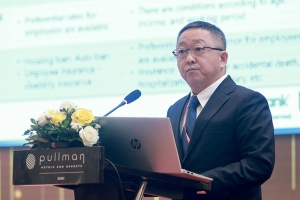 | VPBank provides effective support for FIEs In a fresh move, the innovative Hanoi-based commercial lender VPBank has reiterated its focus on promoting the foreign direct investment (FDI) landscape in Vietnam through a cooperative deal with its strategic partner, Sumitomo Mitsui Banking Corporation (SMBC), to develop and supply an inclusive suite of solutions to support foreign-invested enterprises (FIEs) landing ventures in Vietnam. |
What the stars mean:
★ Poor ★ ★ Promising ★★★ Good ★★★★ Very good ★★★★★ Exceptional
Related Contents
Latest News
More News
- Private capital funds as cornerstone of IFC plans (February 20, 2026 | 14:38)
- Priorities for building credibility and momentum within Vietnamese IFCs (February 20, 2026 | 14:29)
- How Hong Kong can bridge critical financial centre gaps (February 20, 2026 | 14:22)
- All global experiences useful for Vietnam’s international financial hub (February 20, 2026 | 14:16)
- Raised ties reaffirm strategic trust (February 20, 2026 | 14:06)
- Sustained growth can translate into income gains (February 19, 2026 | 18:55)
- The vision to maintain a stable monetary policy (February 19, 2026 | 08:50)
- Banking sector faces data governance hurdles in AI transition (February 19, 2026 | 08:00)
- AI leading to shift in banking roles (February 18, 2026 | 19:54)
- Digital banking enters season of transformation (February 16, 2026 | 09:00)

 Tag:
Tag:




















 Mobile Version
Mobile Version